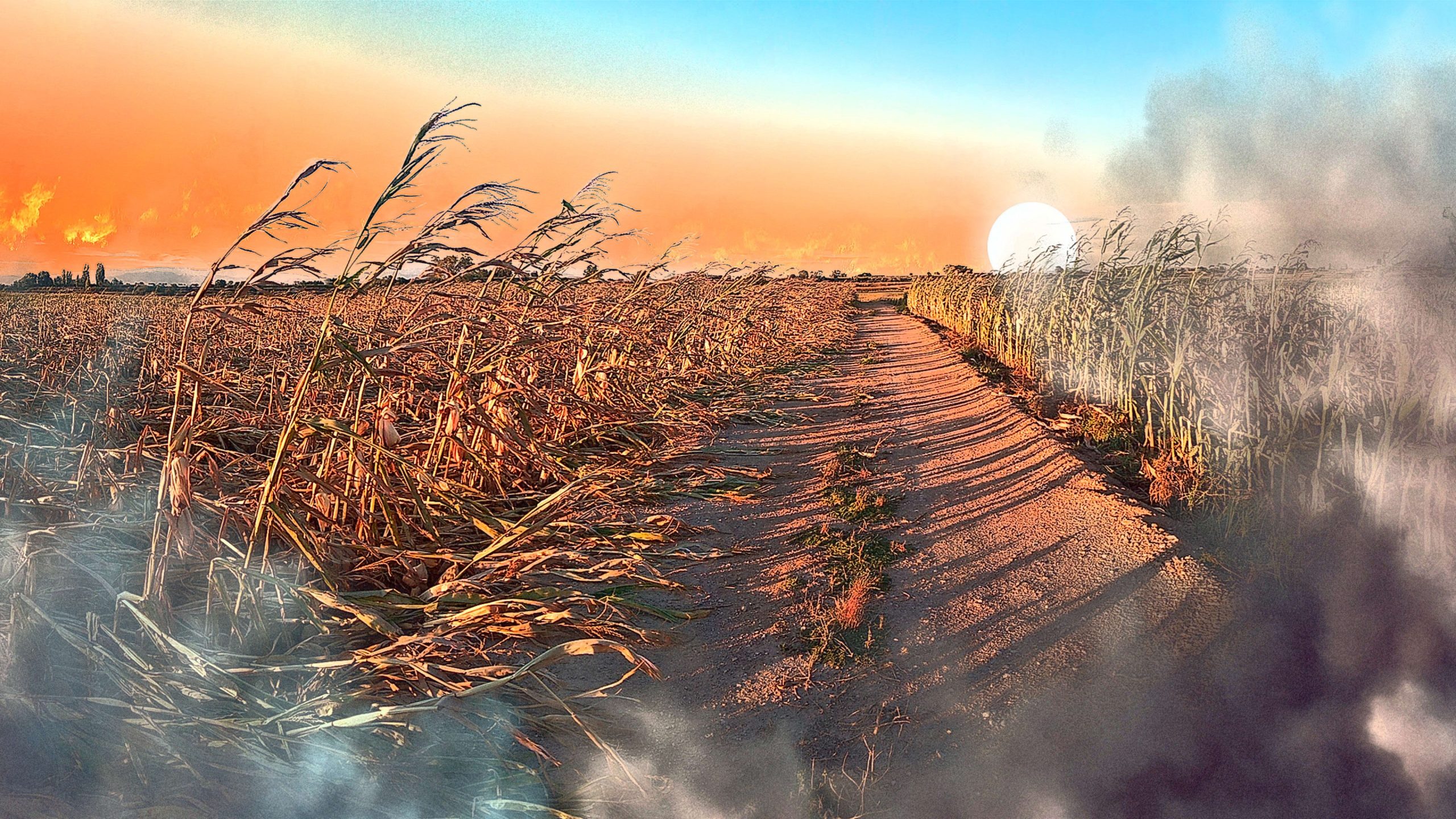Stop saying climate change will destroy the world. The truth is far scarier
I
Stop saying climate change will destroy the world. The truth is far scarier
Climate activists tend to use apocalyptic language when describing the future. But they’re getting the framing all wrong.
Last month, climate activists disrupted a performance of An Enemy of the People, an Ibsen play currently in previews on Broadway, starring Succession actor Jeremy Strong and Sopranos actor Michael Imperioli. The activists’ message, in short: “No theater on a dead planet.”
The Ibsen play is a very topical choice, telling the story of a doctor who identifies an environmental threat to his community’s health, but faces violent backlash when he tries to sound the alarm. The demonstration acknowledged this, beginning with one protester saying “I object to the silencing of scientists,” drawing a clear parallel between Strong’s doctor character and the many climate scientists who have fought for decades to bring environmental issues to the forefront. After apologizing for interrupting the performance, the protester went on to highlight the effects climate change is already having on our environment—particularly how rising sea levels will, eventually, drown New York City—before being forcibly escorted out.
The activists, a group called Extinction Rebellion NYC, clearly succeeded in being heard. The event resulted in news coverage as well as response from the cast. Strong even responded in character as it was happening, telling castmates to “let them speak,” and after the performance was over, Imperioli posted on Instagram in support of the group’s mission.
Rethinking the messaging of climate change
As someone who’s also deeply concerned about the climate, I of course support Extinction Rebellion’s overall mission, as well as their tactic of interrupting life-as-usual to draw public attention to dire issues. My critique is of their message—it’s not a “dead planet” we should be afraid of. It’s something worse.
There isn’t much room for nuance in a time-limited act of protest, of course, but I worry that the “dead planet” rhetoric is actually more stifling to the movement than it is helpful. The language implies that we’re headed for a moment where the earth becomes completely uninhabitable. But a mass extinction probably isn’t exactly what’s going to happen, at least, not in our lifetimes. The more likely reality is a planet that’s very much alive, and full of suffering.
Perhaps unfortunately, the evidence tells us not that climate change will lead us to a single cataclysmic point at which all humans, or even all life, will go extinct (although some species certainly will). In all likelihood, there will be life on Earth for a very long time — and we should be very, very concerned about the quality of those lives. The global temperature is going to rise, many coastal areas will go underwater, and there will be more and more extreme weather events. It’s important to realize that mankind isn’t going to die off before things go from bad to worse: Many people will be alive and forced to endure the conditions our species has created.
And it’s probably not the theater-going crowd that’s going to be hit the hardest—it’ll be the most vulnerable among us, including people with disabilities, people of color, and those in poverty. A report by the EPA found that Black communities are more likely than others to see heightened rates of childhood asthma, as well as temperature-related deaths. Latino communities are most likely to face disruptions to their livelihoods; many work in agriculture and construction, which extreme weather conditions can make difficult if not impossible.
Extreme weather can destroy entire communities, killing many and forcing the survivors to migrate elsewhere, not to mention making basic life necessities harder to access. And worldwide, we’re likely to experience food shortages as climate change disrupts agriculture. Wealthy people in affluent countries will likely remain insulated from these effects, at least for a while, but these things are already happening, and they’re only going to get worse for the people already bearing the brunt of it.
When decades of dire predictions don’t come to pass
In 2017, New York Magazine published an article titled The Uninhabitable Earth, in which the very first heading is the word “Doomsday.” That should give you a sense of its overall tone and message. Shortly after its publication, a group of climate scientists responded with corrections and clarifications, ultimately deeming the article alarmist and misleading.
There’s nothing new about climate activists invoking apocalyptic language. It’s been 62 years since Rachel Carson published Silent Spring. Despite global pesticide use rising by 80% since 1990, we can still hear birds chirping and bees buzzing. Scientist Paul Ehrlich wrote in 1969 that “the end” would come within 15 years, by which he meant “an utter breakdown of the capacity of the planet to support humanity.”
And yet, the world population is well over twice what it was in 1969, and we’re still here, some of us living very comfortably, in fact. Wildlife disruption and food access are certainly major issues that deserve our attention, but by making dramatized claims that fail to manifest, we’re only undermining ourselves.
I understand the impulse to use language that conveys a sense of urgency when discussing the climate crisis. It’s hard to overstate how dire things are, and how dire they’ll likely get. But “the world is going to end” is sloppy and misleading shorthand for the actual crises we can expect, and it damages the movement’s credibility. During a moment when many still deny that climate change is even happening, or that it’s caused by human activity, the last thing we need is to be perceived as crying wolf.
And on the other side, there are many who believe that the effects of climate change are so inevitable that it’s futile to do anything about it. Apocalyptic rhetoric is only going to fuel that sense of hopelessness—not spur us to action.
As Penn State University meteorology professor Michael Mann said in response to the New York Mag article, “The evidence that climate change is a serious problem that we must contend with now is overwhelming on its own. There is no need to overstate the evidence, particularly when it feeds a paralyzing narrative of doom and hopelessness.”
Protest is effective, including and especially protest that interrupts the life and leisure activities of the most comfortable in our society. We just need to be careful with the words we use and remain faithful to the facts. The fact of the matter is that the planet isn’t going to explode like a balloon over a lighter. There won’t be a “doomsday” where everything just stops. We need to prepare for the actual future, which is arguably darker than instantaneous extinction. Most likely, even if we don’t mitigate climate change, the world won’t stop existing; instead, the people and animals on it will face horrifying consequences.
ABOUT THE AUTHOR
(10)



